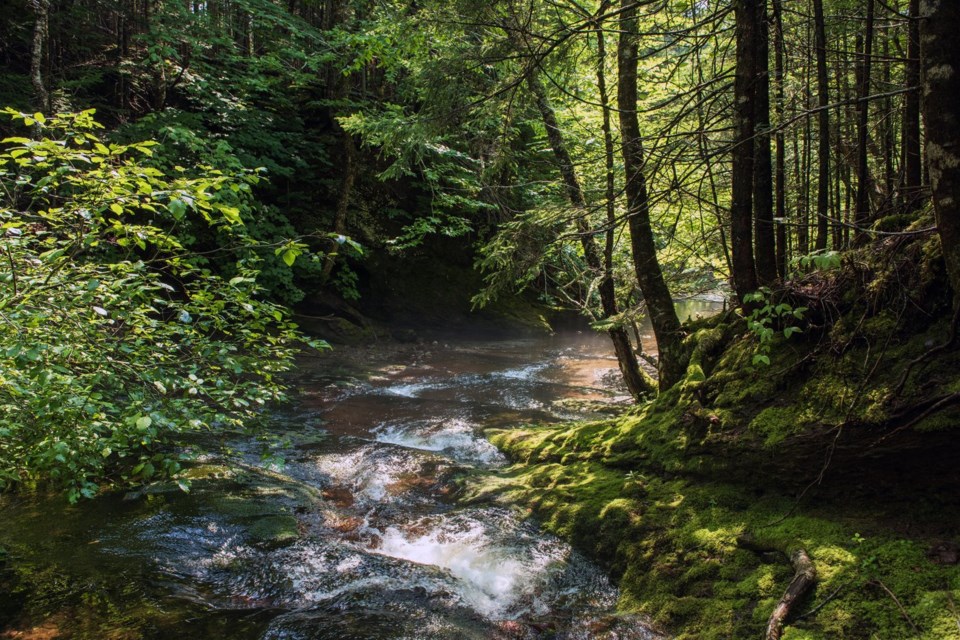FREDERICTON — A picture-postcard forest on the coast of the Bay of Fundy in New Brunswick is being turned into a nature reserve.
Nature Conservancy of Canada said Wednesday it has acquired 2.3 square kilometres of land from the family of Ruby Brown of St. Martins, N.B., about 40 kilometres east of Saint John.
The new Fundy Bay View Nature Reserve, located by the St. Martins Sea Caves and near an existing provincial conservation area, is an important location for migratory shorebirds to stop, feed and rest during their travels north and south, said the non-profit conservation group.
More than half the forest is mature, coastal red spruce, with a mixture of balsam fir, red maple and white spruce, and it's home to a diversity of wildlife, including bear, bobcat and moose, as well as bird species at risk.
Paula Noel, Nature Conservancy of Canada’s program director in New Brunswick, said the land is covered in red spruce trees that are at least 100 years old and peak over the fog that comes off the bay. The new reserve is the group's first conservation project in the St. Martins area, she said, adding that it took about two years for the group to acquire the property.
The Brown family has a strong connection to the forest, she said. Austin Brown, the family patriarch who died in 2007, loved the land and took good care of it for more than 50 years, Noel added. "They wanted to do something to honour him and to make sure that the property would be kept intact and wouldn't be clear cut."
She said the reserve is part of the estimated five per cent of New Brunswick’s Acadian forests that remain in what's known as "pre-colonial" conditions — before Europeans arrived to settle the land.
Mature forests such as this piece of land are important for carbon sequestration, she said, "which protects communities and supports the efforts to fight climate change as well."
Noel, who has visited the property, said she was impressed by the creek, which "kind of flows out into this open wetland near the bay."
"But when you look up the creek or when you're hiking along the top, it's in a deep, deep gorge … with just really tall, straight, big red spruce trees growing up all along the sides of the gorge. It's just a really impressive kind of view looking up."
This report by The Canadian Press was first published Aug. 21, 2024.
The Canadian Press



